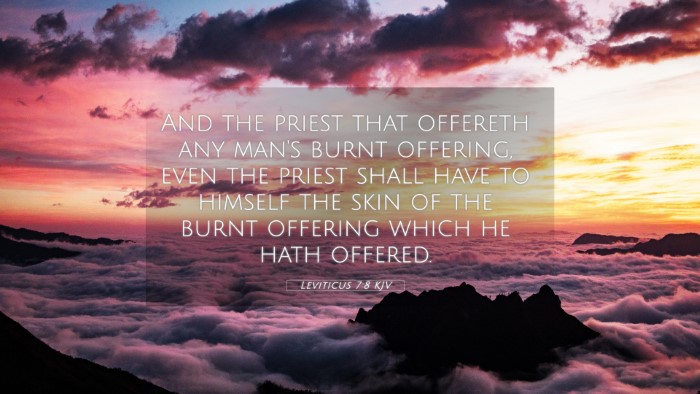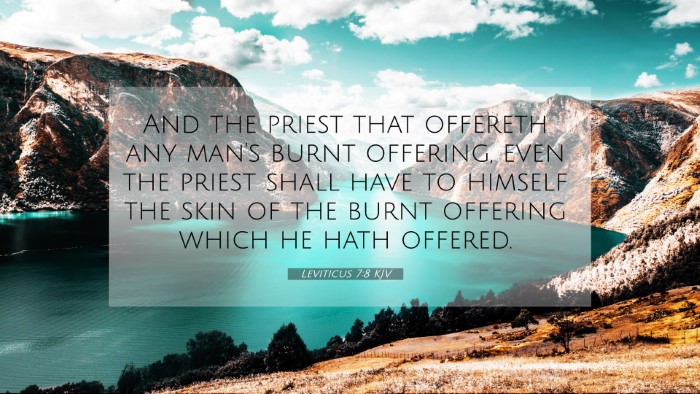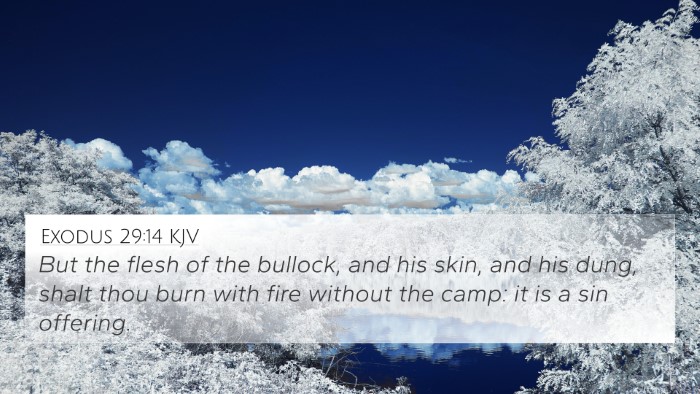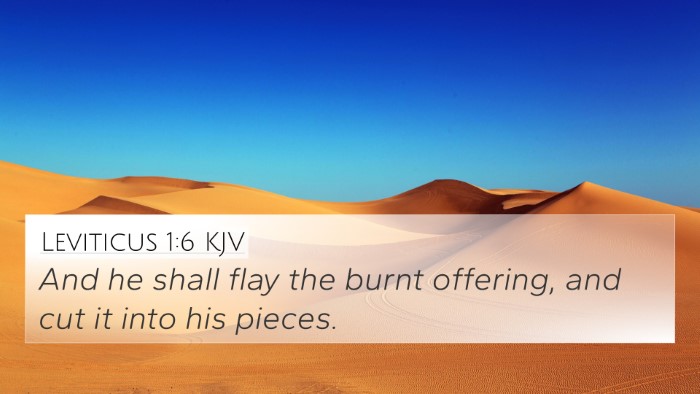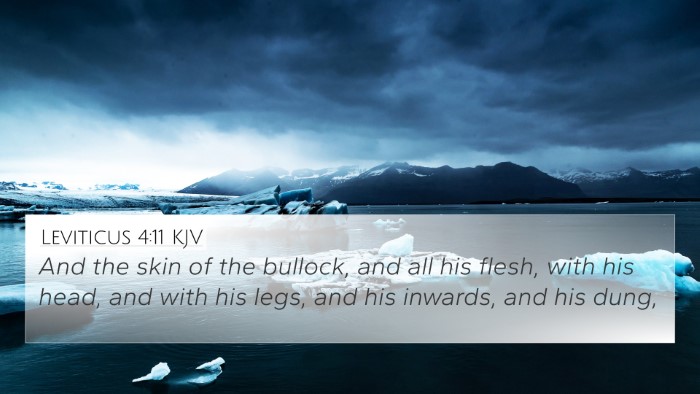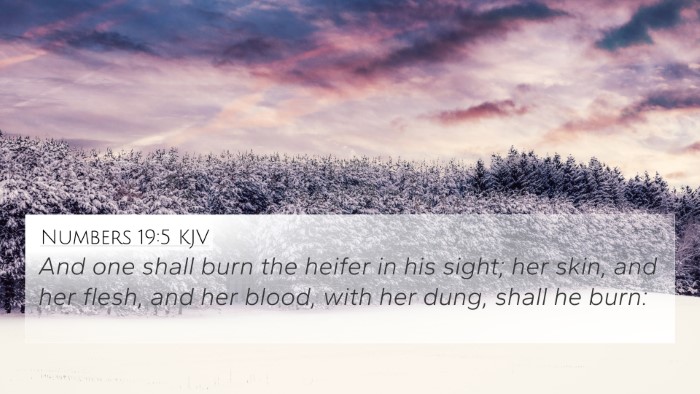Understanding Leviticus 7:8
This analysis aims to provide a comprehensive understanding of Leviticus 7:8 by synthesizing insights from renowned public domain commentaries, focusing on its meaning, connections with other scriptures, and its practical implications in the spiritual context.
Verse Text
Leviticus 7:8: "And the priest that offereth any man's burnt offering, even the priest shall have to himself the skin of the burnt offering which he hath offered."
Summary of Meaning
Leviticus 7:8 is a directive concerning the rights of the priests regarding the offerings brought by the people. In this specific verse, it emphasizes that the priest who performs the act of offering a burnt sacrifice is entitled to the skin of the animal offered. This constitutes both a practical provision for the priest's sustenance and a symbolic representation of their role in mediating the covenant relationship between God and His people.
Commentary Insights
- Matthew Henry:
Henry explains that this provision for the priests is a part of God's arrangement, establishing them as His ministers and ensuring their care. The skin symbolizes their share in the sacrifices made by the community, demonstrating God's provision for those who serve.
- Albert Barnes:
Barnes highlights how this allocation foreshadows the New Testament principle that those who minister in spiritual matters should also reap material benefits. It reflects God's method of sustaining His servants through the offerings of the people.
- Adam Clarke:
Clarke adds a historical perspective, noting that the practice mirrors customs from surrounding nations. However, he emphasizes that in Israel, it's rooted in divine command rather than cultural imitation, showcasing God's unique covenant with His people.
Connections with Other Biblical Texts
This verse is interlinked with several other biblical passages, emphasizing the theme of priesthood, sacrificial offerings, and God's provision:
- Numbers 18:18: This verse discusses the priests' rights concerning the offerings made by the people, reinforcing their entitlement to parts of the sacrifices.
- Deuteronomy 18:1-5: Explores the provision for the Levites, emphasizing their distinct role in the community and how they are supported through the offerings.
- Hebrews 7:10-14: Discusses the priesthood of Melchizedek, making connections between the Old and New Testament understandings of priestly ministry.
- 1 Corinthians 9:13-14: In this New Testament context, Paul refers to how those who preach the gospel should live from the gospel, echoing the principle found in Leviticus 7:8.
- Malachi 1:6-8: This passage critiques the offerings of the people, tying it back to the responsibility of the priests to uphold the sanctity of the sacrifices presented to God.
- Romans 12:1: The call to offer oneself as a living sacrifice links back to the sacrificial system established in Leviticus, highlighting the continuity of God's expectations.
- Exodus 29:26-28: Details the consecration of Aaron and his sons, linking priestly rights to the offerings made to God and the importance of the priestly lineage.
Thematic Analysis
The theme of divine provision through the sacrificial system is prevalent in this verse, as it illustrates how God ensures those who serve Him are cared for. This not only reflects God's justice but also emphasizes the importance of honoring those in spiritual authority.
Practical Implications
For contemporary believers, Leviticus 7:8 serves as a reminder of the importance of supporting spiritual leaders and recognizing the value of their labor. It also encourages congregations to understand the sacrificial nature of ministry, reinforcing the idea that all gifts to God should be made with intention and respect.
Tools for Cross-Referencing
Utilizing cross-references can deepen one's understanding of biblical texts. Here are some recommended tools:
- Bible concordance
- Bible cross-reference guide
- Cross-reference Bible study materials
- Bible chain references
- Comprehensive Bible cross-reference systems
Conclusion
Leviticus 7:8 highlights the significance of the priestly role and God's provision for spiritual leaders. By exploring this verse in conjunction with related scriptures, believers can enhance their understanding of biblical themes and connections, enriching their spiritual growth and comprehension of God's covenant relationship with humanity.

